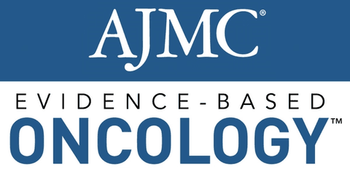
- August 2023
- Volume 29
- Issue 7
- Pages: SP557-SP558
CIinical Pathways: August 2023
NCCN Adds Epcoritamab to Clinical Practice Guidelines in Oncology for DLBCL
Epcoritamab-bysp (Epkinly) has been added to the National Comprehensive Cancer Network (NCCN) Clinical Practice Guidelines in Oncology for B-Cell Lymphomas in the third- or later-line setting for the treatment of patients with diffuse large B-cell lymphoma (DLBCL), including patients with disease progression after transplant or chimeric antigen receptor (CAR) T-cell therapy.1
Epcoritamab also was added as a category 2A preferred regimen for patients with histologic transformation of indolent lymphoma to DLBCL with no intention to proceed to transplant, including patients with disease progression after transplant or CAR T-cell therapy.
The recommendation is based on consensus from the NCCN that the agent is appropriate. The announcement came just 1 month after the FDA granted accelerated approval to the agent for the treatment of patients with relapsed/refractory DLBCL not otherwise specified (DLBCL-NOS), including DLBCL arising from indolent lymphoma and high-grade B-cell lymphoma after 2 or more lines of therapy.2
“The NCCN guidelines are a resource for treating various types of cancer and providing health care providers with information for making informed treatment decisions,” Judith Klimovsky, MD, executive vice president and chief development officer of Genmab, said in a news release.1 “We are pleased that the NCCN has updated its guidelines to include epcoritamab in a speedy manner.”
Epcoritamab received FDA approval based on response rate and durability of response data from the phase 1/2 EPCORE NHL-1 trial (NCT03625037).1,2 Efficacy was evaluated in 148 patients with relapsed/refractory DLBCL-NOS, including DLBCL arising from indolent lymphoma, and high-grade B-cell lymphoma after 2 or more lines of systemic therapy, including at least 1 anti-CD20 monoclonal antibody–containing therapy.
The primary end point of the trial was overall response rate (ORR) assessed by an independent review committee per Lugano 2014 criteria. Results showed that epcoritamab had an ORR of 61% (95% CI, 53%-69%), with 38% of patients achieving complete response. At a median follow-up of 9.8 months among responders, the estimated median duration of response was 15.6 months (95% CI, 9.7-not reached).2
According to an FDA news release, the regimen is to be administered subcutaneously in 28-day cycles until disease progression or unacceptable toxicity. The recommended dose follows step-up dosing in cycle 1, at 0.16 mg on day 1, 0.8 mg on day 8, and 48 mg on day 15 and day 22, followed by fixed dosing of 48 mg weekly dosing during cycles 2 through 3, every other week during cycle 4 through 9, and then every 4 weeks on day 1 of subsequent cycles.2
Notably, the prescribing information has a boxed warning for serious or life-threatening cytokine release syndrome (CRS), as well as life-threatening or fatal immune effector cell–associated neurotoxicity syndrome (ICANS). Among the 157 patients with relapsed/refractory large B-cell lymphoma who received epcoritamab at the recommended dose, CRS occurred in 51% of patients (grade 1, 37%; grade 2, 17%; grade 3, 2.5%), ICANS was reported in 6% (grade 1, 4.5%; grade 2, 1.3%; grade 5, 0.6%), and serious infections occurred in 15%. Serious infections occurred in 15%.2
Other common adverse effects were fatigue, musculoskeletal pain, injection site reactions, pyrexia, abdominal pain, nausea, and diarrhea. The most common grade 3/4 laboratory abnormalities were decreased lymphocyte count, decreased neutrophil count, decreased white blood cell count, decreased hemoglobin, and decreased platelets.2
Continued approval of the agent for this indication will depend on verification and description of clinical benefit in confirmatory trials, including but not limited to the following phase 3 trials: NCT04628494, NCT05578976, and NCT05409066.1
A version of this article first appeared on OncLive®. This version has been lightly edited.
References
1. Genmab announces epcoritamab added to National Comprehensive Cancer Network (NCCN) Clinical Practice Guidelines in Oncology (NCCN Guidelines) for ‘B-cell lymphomas.’ News release. Genmab A/S. June 22, 2023. Accessed June 23, 2023. https://bit.ly/3JM0HKa
2. FDA grants accelerated approval to epcoritamab-bysp for relapsed or refractory diffuse large B-cell lymphoma and high-grade B-cell lymphoma. News release. FDA. May 19, 2023. Accessed June 23, 2023. https://bit.ly/46DJrka
Updated NCCN Guidelines Recommend Ropeginterferon Alfa-2b for Polycythemia Vera
The National Comprehensive Cancer Network (NCCN) Clinical Practice Guidelines in Oncology were recently updated to include ropeginterferon alfa-2b-njft (Besremi) as a preferred treatment option for patients with high- and low-risk polycythemia vera (PV), according to a PharmaEssentia USA news release.1
The updated guidelines recommend ropeginterferon alfa-2b regardless of prior treatment and designate the recommendation as category 2A, which signifies a uniform NCCN consensus that ropeginterferon alfa-2b is an appropriate intervention for patients with PV. The agent was granted FDA approval for the treatment of patients with PV in 2021, and it was the first FDA-approved treatment indicated for PV regardless of patients’ previous treatments.2
“Importantly, the NCCN guidelines update includes moving [ropeginterferon alfa-2b] to preferred status, reinforcing to treating physicians and patients that, with its broad utility, [ropeginterferon alfa-2b] is recommended for proactively treating PV,” said John Mascarenhas, MD, professor of medicine, hematology, and medical oncology at the Icahn School of Medicine at Mount Sinai in New York, New York, in the news release.1
PV, a rare hematological malignancy and the most common chronic myeloproliferative neoplasm, is characterized by overproduction of red blood cells in bone marrow, which can lead to elevated white blood cell and platelet counts. Ropeginterferon alfa-2b is a monopegylated, long-acting interferon that blocks the signals that cause malignant cells to multiply.
The FDA approval of ropeginterferon alfa-2b was based on safety data from the PEGINVERA trial (NCT01193699); PROUD-PV trial (NCT01949805) and its open-label extension portion, CONTINUATION-PV (NCT02218047); and efficacy data from the PEGINVERA clinical study program, according to a news release following the 2021 approval.3
Efficacy results showed that 61% of patients experienced complete hematological response—defined as hematocrit less than 45% without phlebotomy for at least 2 months since the patient’s last phlebotomy, platelet counts of 400 × 109/L or less, leukocytes of 10 × 109/L or less, and normal spleen size—following 7.5 years of treatment with ropeginterferon alfa-2b. Based on objective laboratory parameters, 80% of patients achieved a hematological response in the study.3
As far as safety, ropeginterferon alfa-2b was shown to be tolerable in a pooled safety population, with the most common adverse reactions with incidence of 40% or higher being influenzalike illness, arthralgia, fatigue, pruritis, nasopharyngitis, and musculoskeletal pain. Serious adverse reactions occurring in less than 4% of cases were urinary tract infection, transient ischemic attack, and depression.3
New data from the PROUD-PV and CONTINUATION-PV studies were presented at the 64th American Society of Hematology (ASH) Annual Meeting and Exposition in December 2022, adding to evidence in support of ropeginterferon alfa-2b for PV. Results from one abstract showed that the majority of both low- and high-risk patients with PV (85.7% and 75.0%, respectively) in the CONTINUATION-PV trial did not require phlebotomy for the entire sixth year of treatment.4
“This recent update to treatment guidelines by NCCN represents the community’s recognition of the value of [ropeginterferon alfa-2b] as a therapeutic option for all adults with PV, regardless of their treatment history,” said Raymond Urbanski, MD, PhD, senior vice president and head of clinical development and medical affairs at PharmEssentia. “Given its deep, durable control over the disease beyond the symptoms, we’re continuing to study [ropeginterferon alfa-2b] in PV, as well as other myeloproliferative neoplasms and hematologic malignancies.”1
References
1. NCCN Clinical Practice Guidelines in Oncology updated to recommend Besremi (ropeginterferon alfa-2b-njft) as a preferred intervention for polycythemia vera. News release. PharmaEssentia USA Corporation. May 23, 2023. Accessed May 24, 2023. https://bit.ly/3rfw09I
2. FDA approves treatment for rare blood disease. News release. FDA. November 12, 2021. Accessed July 6, 2023. https://bit.ly/46AStye
3. U.S. FDA approves Besremi (ropeginterferon alfa-2b-njft) as the only interferon for adults with polycythemia vera. News release. PharmaEssentia Corporation. November 12, 2021. Accessed July 6, 2023. https://bit.ly/3D0LsZW
4. Caffrey M, Shaw ML, Klein HE. ASH 2022: rare diseases & blood disorders. Am J Manag Care. 2023;29(suppl 1):SP42-SP46.
Articles in this issue
over 2 years ago
FROM THE EDITOR IN CHIEF: For the Want of a Nailover 2 years ago
COA Sues HHS Over FAQ That Limits Oral Drug Deliveryover 2 years ago
SPOTLIGHT INTERVIEWS: EHA 2023 Hybrid CongressNewsletter
Stay ahead of policy, cost, and value—subscribe to AJMC for expert insights at the intersection of clinical care and health economics.









